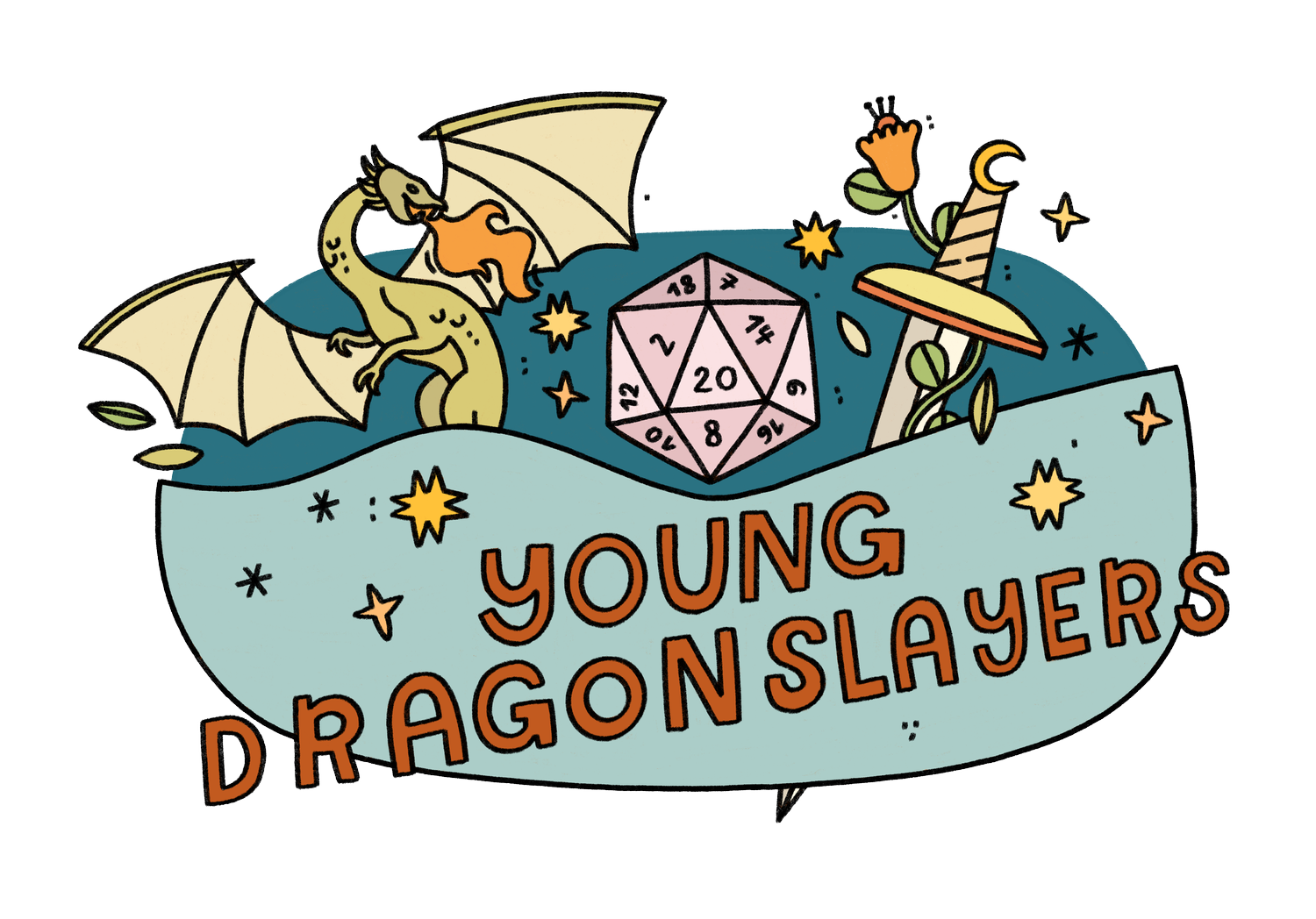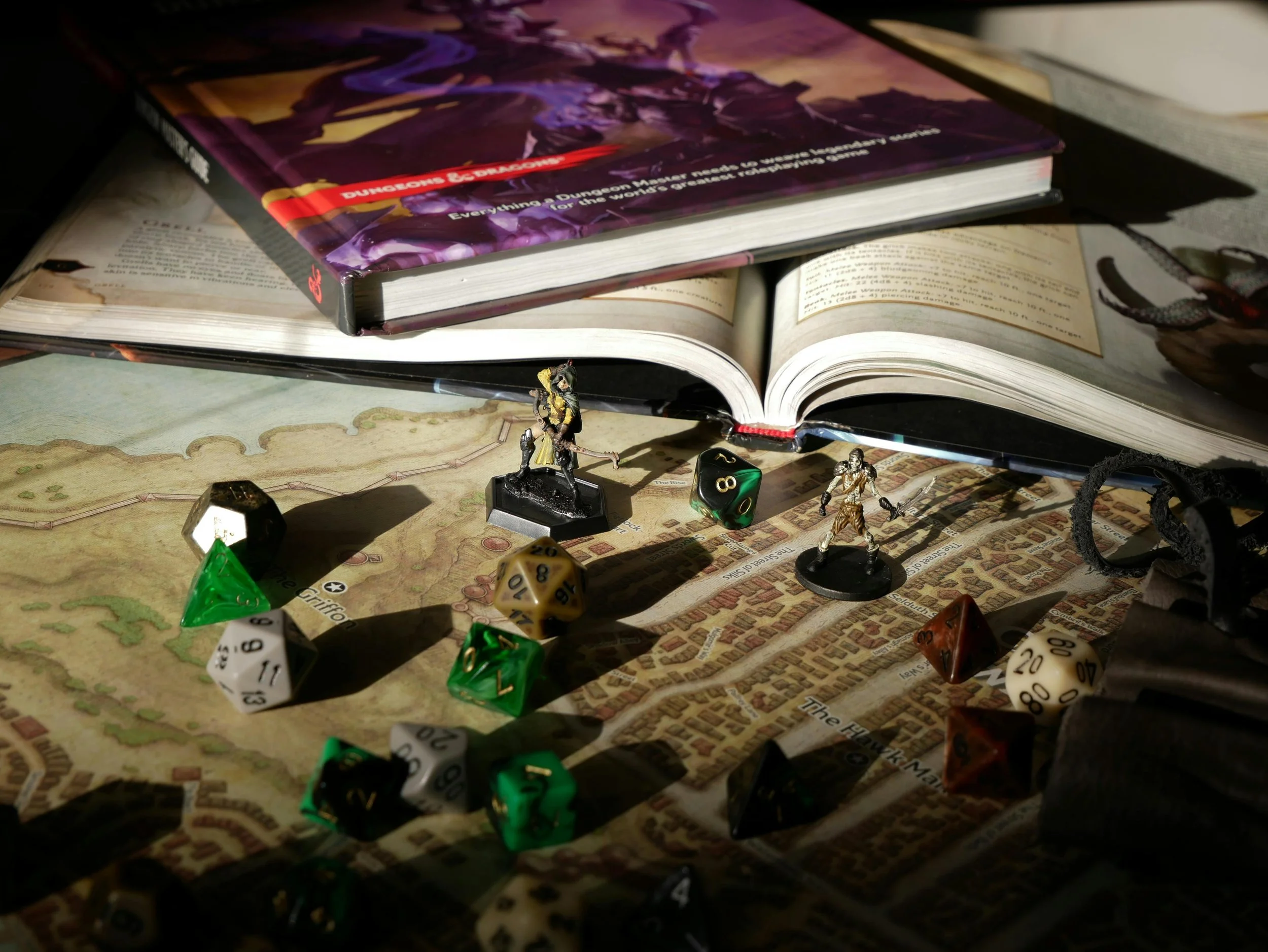Rolling for Focus: 7 Benefits of D&D for Kids with ADHD
In a world where online distractions reign supreme and attention spans waver, children diagnosed with Attention Deficit Hyperactivity Disorder (ADHD) often find themselves navigating an uphill battle. However, amidst the chaos of modern life, a beacon of hope emerges in the form of an unexpected hero – Dungeons & Dragons! This cherished tabletop role-playing game isn't just about rolling dice and slaying dragons; it's a transformative journey that offers unique therapeutic benefits for children struggling with ADHD.
So, what exactly makes Dungeons & Dragons such a game-changer for ADHD kids? Let's roll the dice and explore the unique benefits it offers.
D&D Offers Structured Flexibility
One of the paradoxes of ADHD is the need for structure combined with the aversion to rigid routines. On one hand, we know that predictable structures and routines can make it easier for kids with ADHD to focus, follow through with tasks, and manage their emotions. On the other hand, too much structure and predictability can quickly become boring.
D&D strikes the perfect balance by providing a framework (the rules of the game) within which players have the freedom to make choices and shape the narrative. This structured flexibility not only keeps the game engaging but also teaches children valuable skills in decision-making and problem-solving.
Creativity and Imagination Keep Kids Engaged
At its core, D&D is a collaborative storytelling experience. Players create characters with unique backgrounds, motivations, and abilities, and embark on epic adventures guided by a Dungeon Master. For children with ADHD, this immersive storytelling environment can be incredibly captivating. It offers an outlet for the boundless creativity and imagination that are often ADHD superpowers.
The creative aspect of the game can boost engagement, too. As players become invested in their characters and the world they inhabit, they're more likely to stay focused and actively participate in the game.
D&D Gives Kids a Safe Place to Socialize
Many of our ADHD players tell us they desperately want to make friends. However, their struggles with social cues and impulsivity sometimes get in the way of maintaining relationships. D&D provides a safe and supportive space for children to interact with peers, without judgment.
Through the game, ADHDers can practice communication skills, resolve disagreements calmly, and build meaningful connections with peers. Collaborating with others to overcome challenges fosters a sense of camaraderie and belonging, boosting self-esteem and confidence in social settings.
D&D Has Executive Functioning Benefits for ADHDers
Managing time, staying organized, and prioritizing tasks are all areas where children with ADHD typically struggle…and these skills are often boring to learn. Surprisingly, D&D can help strengthen these executive functioning skills in a way that doesn’t feel like work! The skills are baked right into the mechanics of the game, so you can’t help but practice them when you play.
Keeping track of hit points, planning strategies in combat, and resolving conflicts require players to exercise cognitive functions such as working memory and impulse control – skills that are essential for success both in and out of the game.
In-Game Triumphs and Setbacks Support Emotion Regulation
Dealing with setbacks and disappointments is a part of life, but for children with ADHD, managing these negative emotions can be particularly challenging. In D&D, players inevitably face obstacles and failures along their journey, as well as moments of triumph and success. Since these experiences don’t have any real life consequences, they’re a great way to practice failing or succeeding gracefully.
Learning to cope with both success and failure in a supportive environment helps children develop resilience and emotional regulation skills, empowering them to navigate life's ups and downs with confidence.
Slow, Steady, and Tangible Rewards
In a world where instant gratification reigns supreme, D&D offers a refreshing change of pace. Progression in the game is earned through hard work, perseverance, and teamwork, rather than quick fixes or shortcuts. If at first you don’t succeed, D&D will encourage you to try, try again. And once you do accomplish your task, you can always count on reaping some kind of measurable reward to give you a little dopamine boost.
Whether it's leveling up a character, uncovering hidden treasures, or defeating formidable foes, nearly every achievement in D&D is earned through effort. And while the rewards aren’t technically tangible (at least outside of the fantasy realm) they are concrete: you can easily point to them as a sign of progress.
These rewards build over time, giving your character better and stronger powers. Watching your character level up over time is a testament to your dedication and skill as a player, instilling a sense of pride and accomplishment that can boost self-esteem and motivation.
A Safe Escape from Everyday Stress
Living with ADHD can be overwhelming, with constant demands and expectations weighing heavily on children's shoulders. D&D provides a much-needed escape from the pressures of school, sports, and social drama. Players can set their worries aside for an hour or two while they step into the shoes of courageous heroes, embarking on daring adventures in fantastical realms.
This temporary reprieve from the pressures of everyday life can be a big relief. Playful, social interactions like D&D can help kids relax and improve their mood. Who knows: when they revisit the worries they set aside, maybe they won’t seem quite so overwhelming anymore.
D&D’s ADHD Benefits: In Conclusion
In conclusion, Dungeons & Dragons isn't just a game; it's a powerful tool that can offer real benefits for kids with ADHD, including:
A balance of flexibility and structure
Opportunities for creativity and imagination (which increases engagement)
A safe, supported way of socializing
Executive Functioning skills practice
An in-game rewards system
Safe escapism and stress relief
Playing D&D helps children develop essential skills, build meaningful relationships, and navigate the challenges of life with confidence and resilience. So, the next time you see a group of kids huddled around a table, rolling dice and swapping stories, don't dismiss it as mere child's play – it could unlock a world of possibilities.
Come Play with Us!
If you’re looking for a place to get started with D&D, we can help! Our online weekly games for tweens and teens are facilitated by adults who work professionally with kids in their non-D&D lives. As a therapist-founded company, we strive to be inclusive, supportive, and neurodiversity-affirming. We love bringing kids from all walks of life together and watching them create new friendships and celebrate successes together—usually while defeating some mythical creatures and scoring cool loot along the way.
Fill out our application form to get started. We’ll be in touch shortly to let you know about upcoming opportunities to join us!




